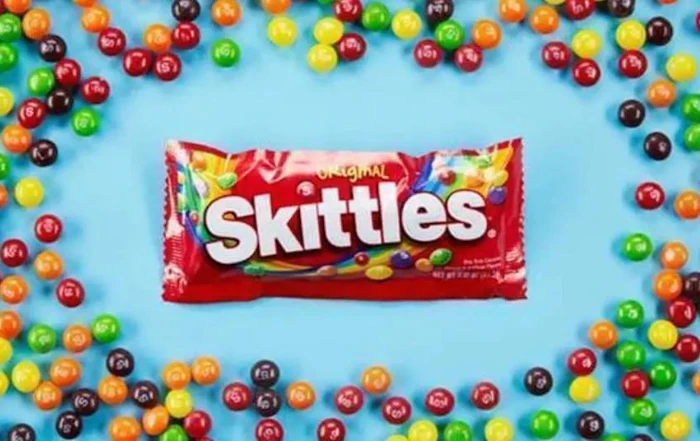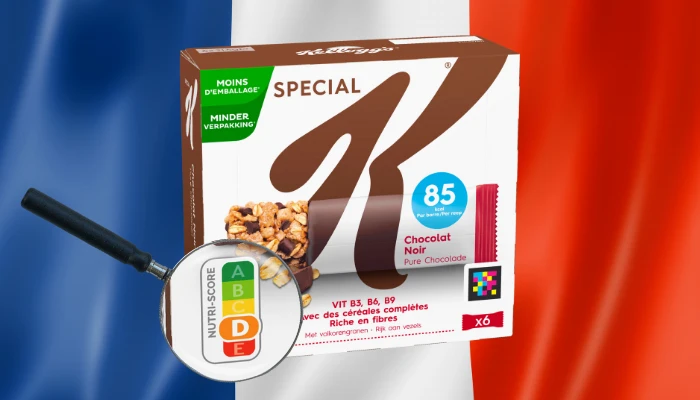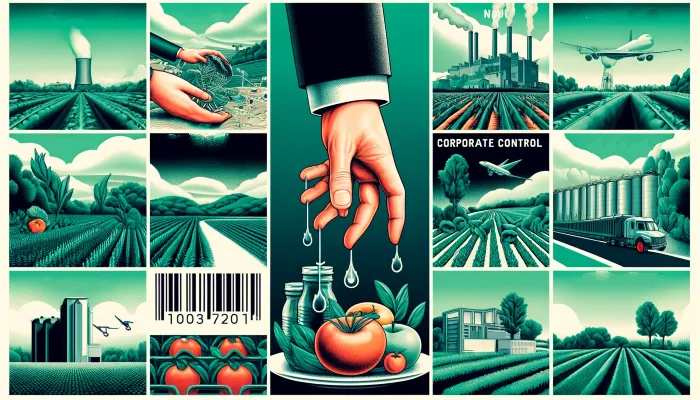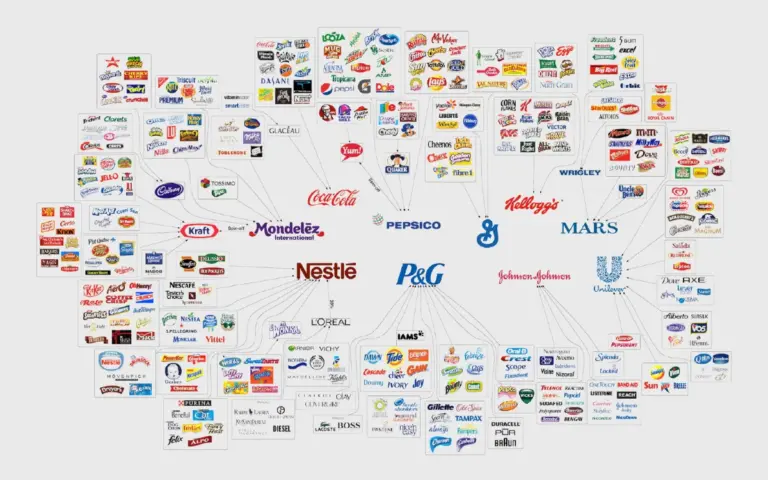Today, we’re diving into a topic that will leave you craving knowledge and questioning your pantry choices.
Picture this: a world where certain American foods are deemed too risky for consumption in other countries. Sounds intriguing, right? So grab your popcorn (but not the banned kind) and let’s dig in!
Now, before we get started, let’s address the elephant in the room—the U.S. food scene. Unfortunately, it’s not exactly known for being the pinnacle of healthiness. So, today, we’ll explore twelve popular American foods that have been shown the door by other nations. And trust me, some of these may surprise you!
But first, a quick disclaimer: the FDA (Food and Drug Administration) is the regulatory authority in the U.S. responsible for ensuring food safety. However, their approval doesn’t always mean it’s a golden stamp of healthiness. So, we’ll venture into the realm of banned foods to uncover the truth.
Now, let’s explore the fizzy world of Mountain Dew. This beloved soft drink with its radioactive glow harbors a hidden danger. Enter brominated vegetable oil, an ingredient that has been associated with headaches and even memory loss.
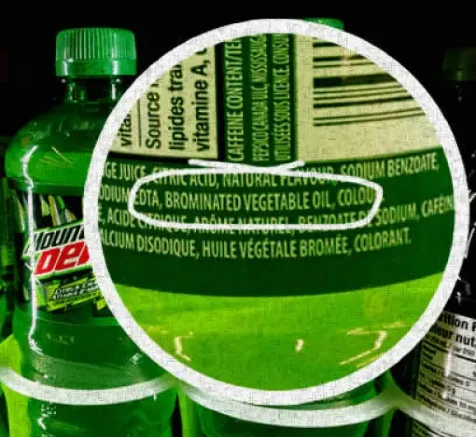
The European Union and Japan have decided to bid farewell to this toxic elixir. It’s a reminder that even the most refreshing beverages can come with a bitter aftertaste.
Next on the list are Maraschino cherries, those vibrant red delights that add a pop of color to your desserts. Here’s the catch—the bright red hue comes from a dye called red number 40. Unfortunately, this dye is highly allergenic and not so friendly to our gut health. So, those cherries on top might be hiding a colorful secret.
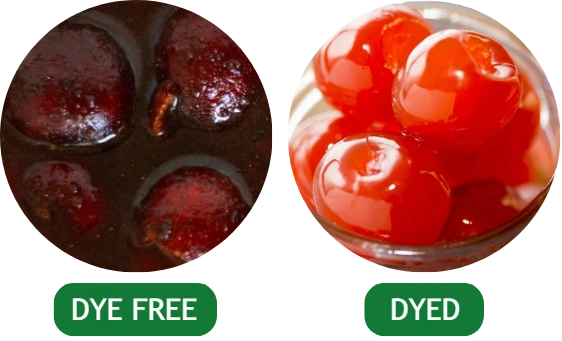
Next up, we encounter the colorful candies known as Skittles. But beneath their rainbow hues lies a troubling ingredient — titanium dioxide. This chemical, used to make candies bright and enticing, has been linked to lung tumors in rats. Norway and the EU have put their foot down, banning Skittles to protect their citizens from the potential dangers of this candy-coating culprit.
Next up, we have U.S-produced pork, which holds a controversial secret. To speed up the weight gain of pigs, American farmers employ a feed additive called ractopamine. However, this additive has been found to pose significant health risks, including heart problems. In fact, more than 160 countries, including Russia and China, have said “no” to pork raised with ractopamine. It’s a cautionary tale about the price we pay for a quick pork fix.
This brings us to corn, a ubiquitous ingredient in the American diet. However, what you may not know is that up to 98% of U.S. corn is genetically modified and subjected to extensive pesticide spraying. This includes the use of atrazine, a notorious pesticide known to disrupt the endocrine system. With concerns about the potential effects on our hormonal balance, it’s no surprise that many countries have raised the stop sign on U.S. corn imports. It’s a stark reminder that the seemingly innocuous corn on our plates may come with a hidden price.
Now, let’s dive into the world of pre-packaged ground beef—a meaty revelation that might leave you feeling slightly queasy. Hidden within those convenient packages lies an unappetizing filler known as pink slime. Yes, you read that correctly—pink slime! This meat byproduct undergoes a treatment process involving ammonia gas. The thought of sinking your teeth into a hamburger patty laced with ammonia might make you pause and reconsider your next meal choice. It’s a reminder that not all ground beef is created equal.
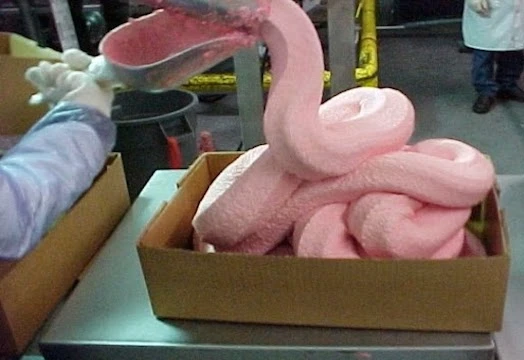
Swimming into the realm of seafood, we encounter the controversial topic of farm-raised fish and salmon. These aquatic delicacies often come with a hidden secret—the fish are fed a chemical cocktail that includes methylmercury, dioxins, and antibiotics.
This unsettling combination raises concerns about the potential health risks associated with consuming these artificially-raised seafood options. It’s no wonder that many countries have given farm-raised fish and salmon the cold shoulder, opting for more natural alternatives. As we navigate the waters of seafood consumption, it’s crucial to consider the origins and practices involved in bringing fish to our tables.
Time to crunch on some cereal knowledge. Some beloved cereal brands, like Fruit Loops, Frosted Flakes, and Honey Bunches of Oats, contain not-so-friendly ingredients like artificial colors (yellow number 5 and red number 40) and preservatives like BHT.
That’s why other countries, including some members of the European Union, have deemed them unfit for consumption. These countries want their citizens to start the day on a healthier note, unlike the U.S., where these cereals are breakfast table staples.
Let’s milk this topic a bit. American milk and most dairy products have been banned in the European Union, Japan, Australia, and New Zealand. Why? Because many U.S. dairy cows are injected with a hormone called recombinant bovine growth hormone. Time to rethink our milk mustache moments, folks! These hormones can disrupt the delicate balance of our own hormones and have been associated with serious health issues, including cancer.
In response to these concerns, even Canada has closed their borders to American milk. It’s a sobering reminder that what we pour into our glasses may have far-reaching consequences.
We must now confront the world of American chicken. After the birds are slaughtered and processed, U.S. chicken producers take an unconventional step—they bathe the poultry in a chlorinated bleach solution. While this might sound like a recipe for squeaky-clean poultry, the European Union has raised concerns about the practice and banned the sale of U.S.-made chickens since 1997. It’s a clash of culinary cultures, where cleaning methods become a point of contention.
Ready for a toast to bread? Well, hold on. U.S. bread contains a compound called azodicarbonamide, which is banned in several countries. Additionally, some bread contains potassium bromate, another no-no in places like Brazil, the UK, and Canada. And don’t forget the high fructose corn syrup—often lurking in bread, leading to a sweeter, but not so healthy, loaf.
Last but not yeast, processed meats like bacon, sausages, and deli meats are packed with sodium nitrate, a known carcinogen. This means they join the ranks of cigarettes, asbestos, and plutonium in the “bad for you” category. That’s a club no one wants to be part of!
Phew! That was quite the culinary rollercoaster. So, remember, folks, while these foods might still be easily available in the U.S., it’s essential to be mindful of what we consume. Understanding the potential risks associated with these banned foods can help us make healthier choices for ourselves and our loved ones.
Well, there you have it—the forbidden foods that have crossed borders but were met with resistance. Now it’s up to you to decide how to curate your menu and nourish your body. Until next time, stay informed, stay curious, and remember, not all that glitters on your plate is gold. Stay healthy, folks!







